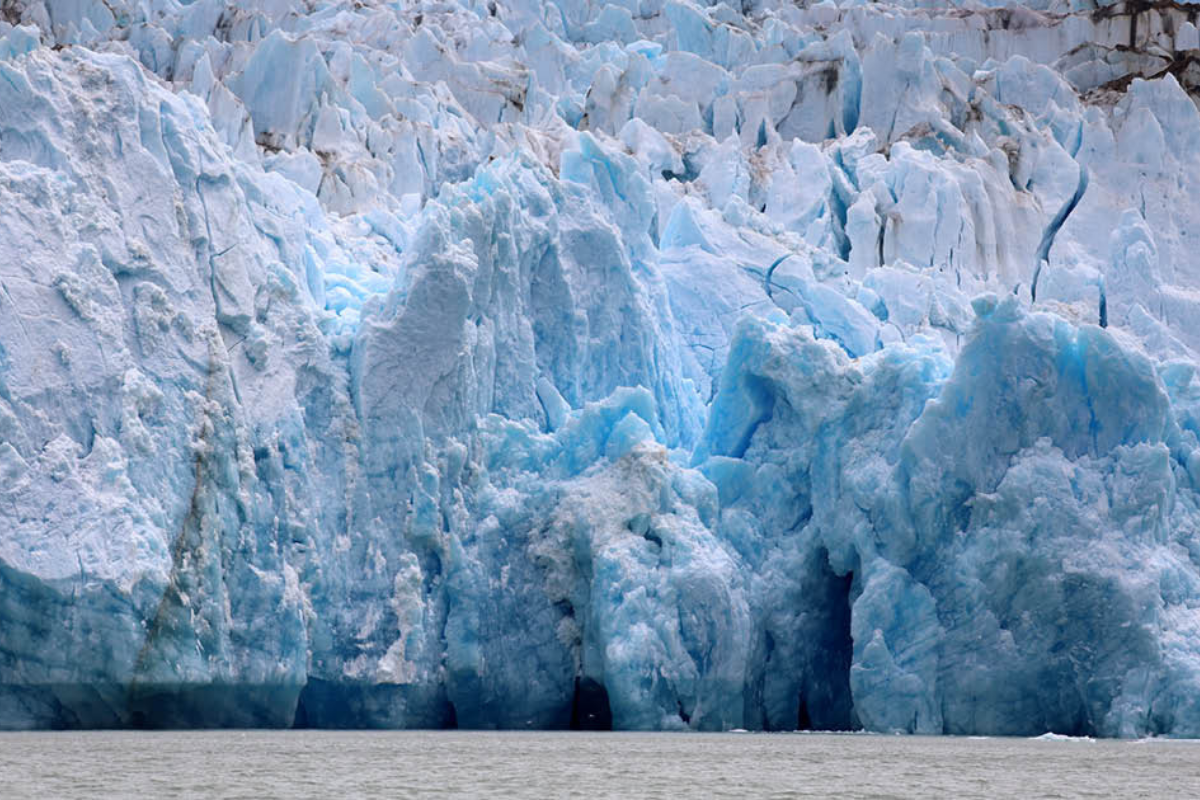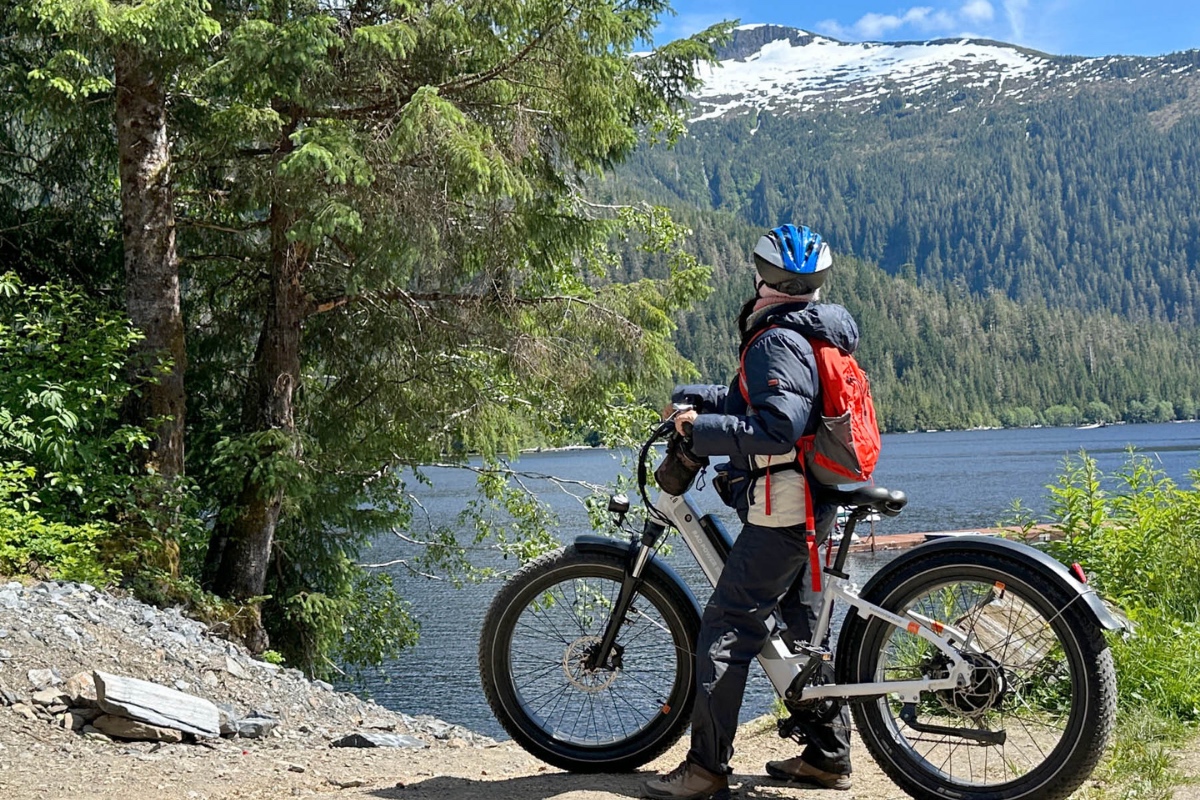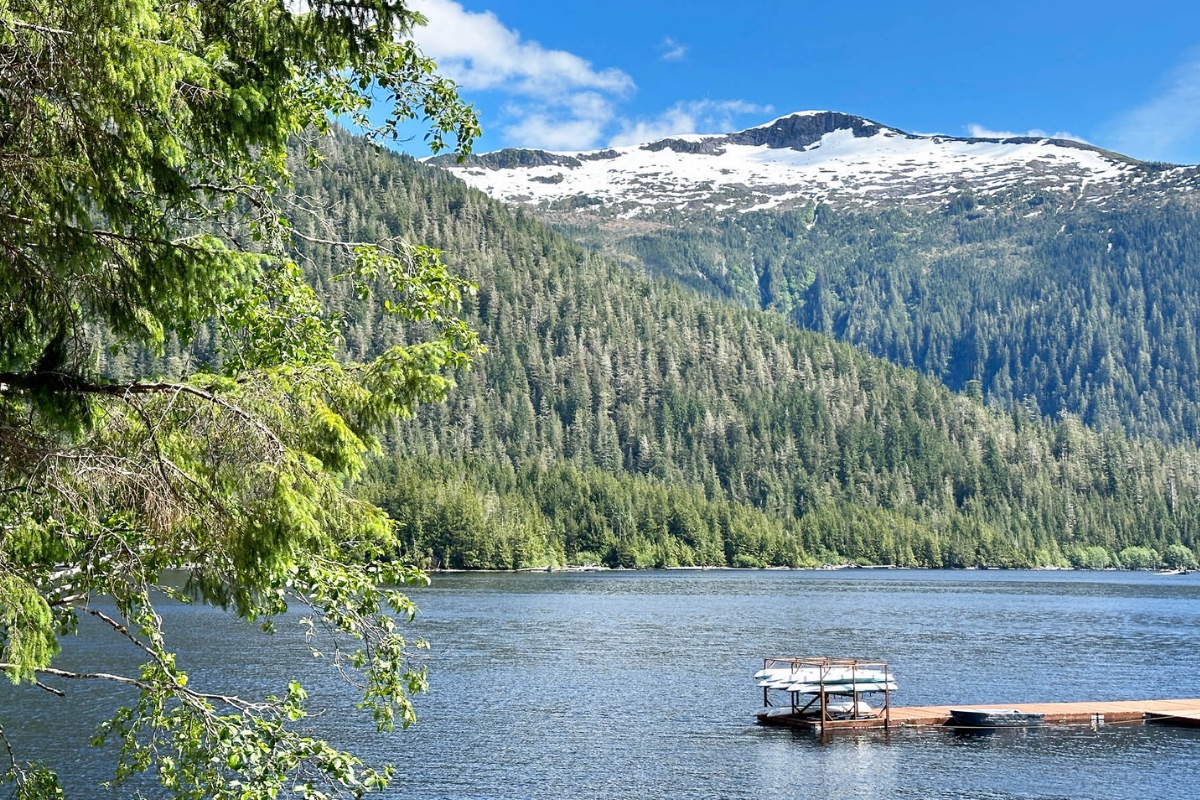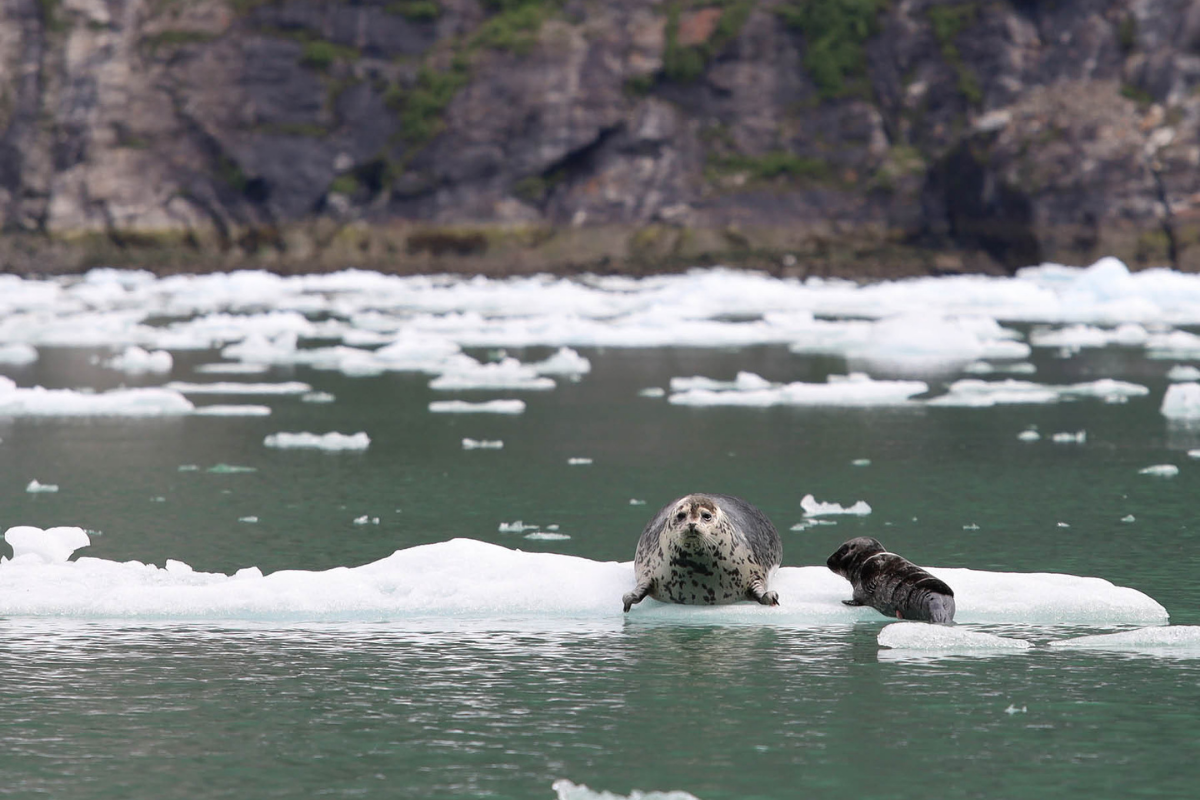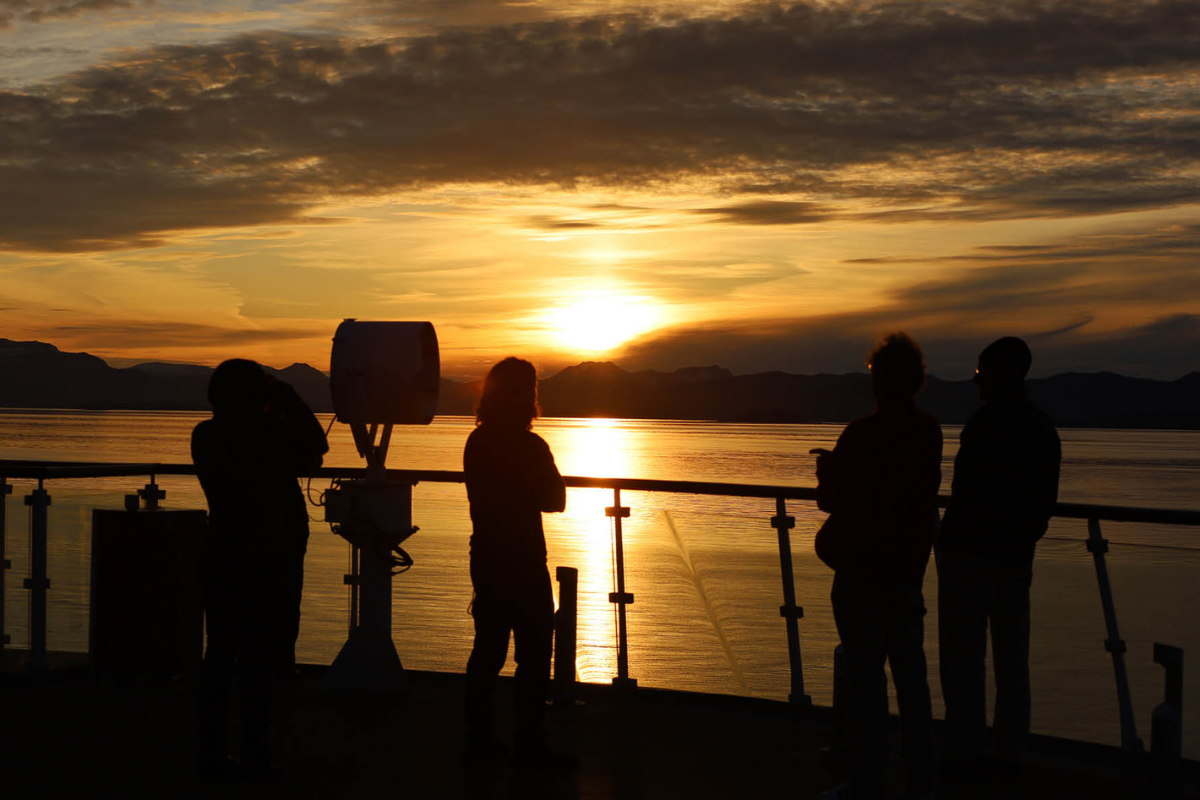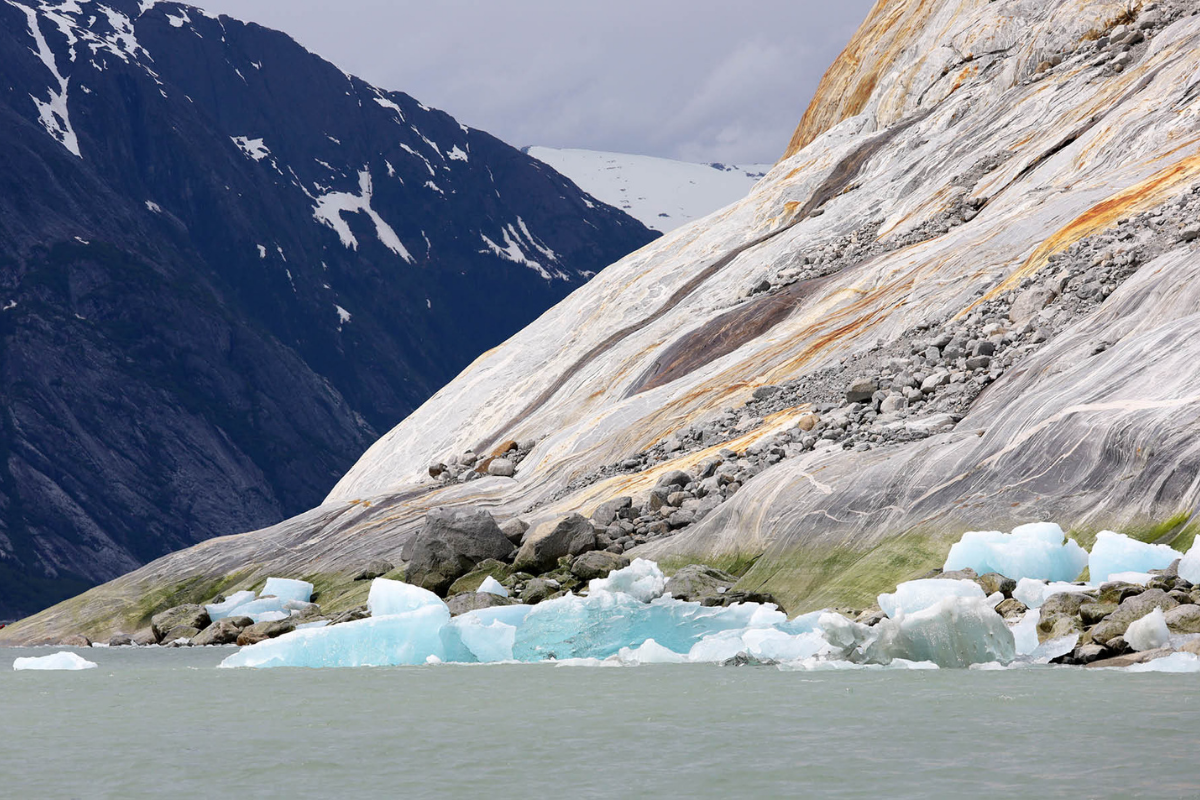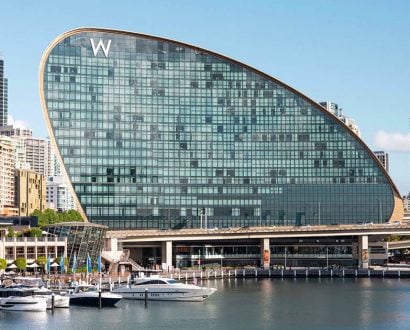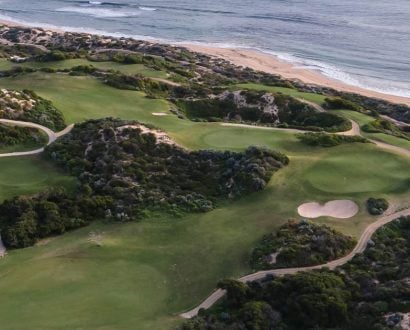Raw and crisp, the glacial air bites. Our Zodiac slows in a fjord choked with ice. Gloved fingers and bonneted heads embrace their warmth as frigid floes drift by. Like frozen freshwater barges, they sail towards the saline sea freighting harbor seals; their furry figureheads.
I’m in the glacial heart of Southeast Alaska. American Queen Voyages steered me here from Sitka on the Ocean Victory, an X-Bow expedition ship originally built for the ice-strewn waters of Antarctica.
Here, at South Sawyer Glacier in the Tracy Arm-Fords Terror Wilderness Area, harbor seals nurse their pups while Arctic terns plunge dive around them.
Glacial Alaska
Recently de-glaciated (by ice-age standards), Southeast Alaska continues to be carved and sculpted by shifting ice. At Endicott Arm, the ice appears blue due to its density.
Here, we witness ice calving as it breaks away from the 105-meter-tall face of Dawes Glacier. Snowflakes that became ice fields have taken 400 years to reach where they crash into the glass-flat before us now. The thunderous boom electrifies every fiber of my being.
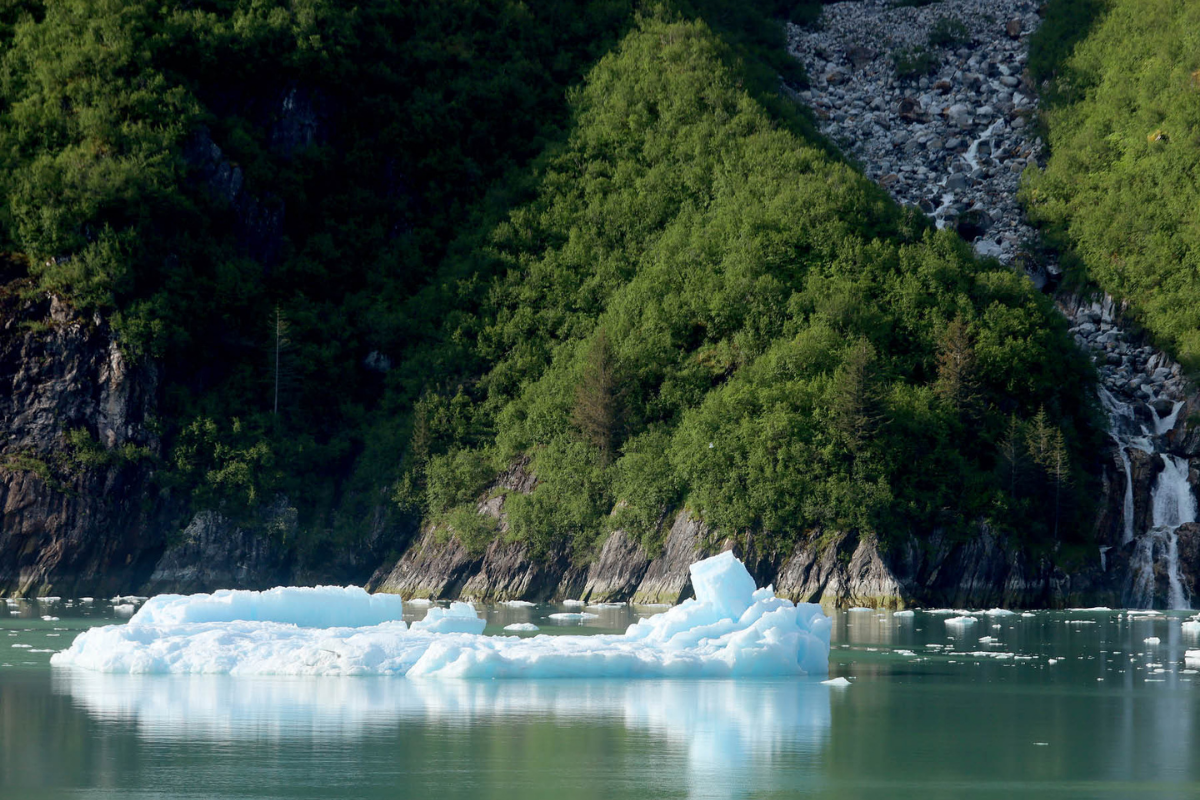
The thunderous boom electrifies every fiber of my being.
We are enwreathed within the Tongass National Forest. Its 800-kilometer length boasts 17,700 kilometers of coastline, island chains, river valleys, misty fjords and glacial mountains.
The biodiverse region supports a symbiotic blend of lichens, mosses, ferns, fungi and berries, and is crowned by old-growth forests of western hemlock, Sitka spruce, and red and yellow cedar.
Marine Alaska
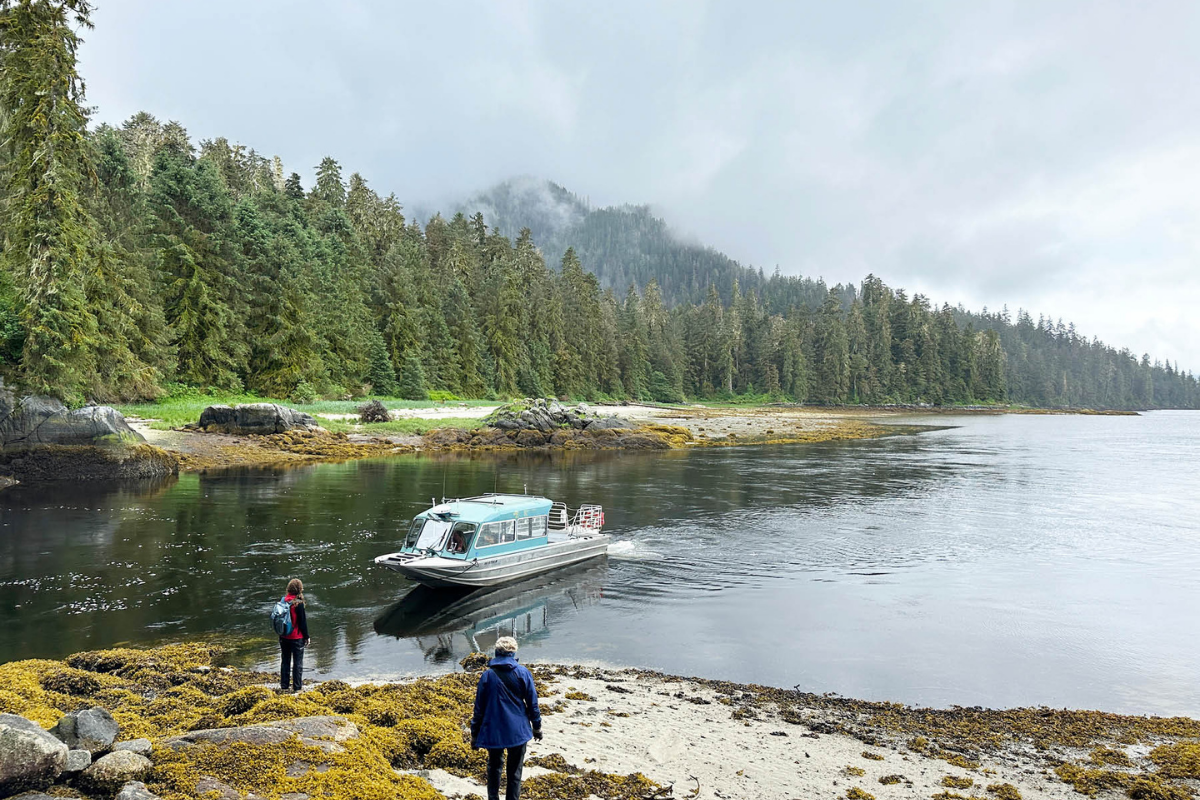
At Port Malmesbury in the Kuiu Wilderness, Zodiac captain Kristina leads our next expedition. American Queen Voyages partners and collaborates with the Sitka Sound Science Center, the Sound Science Research Collective based at Five Finger Lighthouse near Petersburg.
It also actively promotes Happywhale, which conducts and gathers humpback whale research through citizen scientists, inviting them (us) to submit photos of tail flukes for identification and migration tracking.
We’re onto it. Two humpback whales reveal their spouts. After a tail-slapping frenzy, we witness them bubble-net feeding (a rare sight). Tonight, we’ll go online.
Wildlife-spotting moments continue at Chatham Strait in the Alexander Archipelago when we spot a raft. But it’s not made of wood. It’s a raft of sea otters: the keystone species for kelp forest ecosystems. A member of the weasel family, some reach 1.5 meters in length.
Otters are deft-handed tool users. With their powerful claws they use stones to crack open shellfish. They keep that stone for years (sometimes, life) tucked into a concealed pocket in their armpit.
When we spot mothers floating on their backs with pups on their bellies, it’s a visceral moment.
Forested Alaska
On an excursion from the island of Wrangell, Captain Mark and guide Dee of the Stikine River Jet Boat Association zoom us to the ancient forest of Anan. We disembark at Anan Creek, an ancient Tlingit fish trap wilderness.
The creek-side walk rises to a timber platform. As Anan Creek gushes below, we take in the timeless land where brown and black bears roam and pink salmon spawn.
Back on the trail, Dee begins to tell us the legendary story of Fog Woman, who filled Anan Creek with salmon – until she suddenly stops talking. For every 21 people in Alaska, there is one bear. And here is ours.
Conversation halts. Heartbeats race. Undisturbed, the brown bear continues to forage.
Conversation halts. Heartbeats race. Undisturbed, the brown bear continues to forage.
A new port day introduces Ketchikan on Revillagigedo Island, where I join guides Kjerstin and Zig for an e-bike tour. From The Mill at Ward Cove, we bounce our chunky wheels across the rocky trail bordering a salmonberry-lined stream, where Kjerstin points out a newly built beaver dam made from red alder.
After absorbing handsome Connell Lake, we park the bikes to enter an enchanting forest chandeliered in mosses.
“That skunk cabbage, named after its flower’s terrible smell, creates a mini heat field around it, so it’s one of the first plants we see during spring snowmelt,” says Zig, pointing to the side of the trail.
“It’s also one of the first foods a bear seeks post-hibernation. The natural laxative in its roots clears their digestive system.”
Pausing, Zig grabs an upright branch, which she pulls, and pulls, and pulls from the mud. It’s taller than her. “This is why we stay on the trail. Welcome to our quicksand!” she says, as mouths drop.
It looks deceptively like you could walk right across the muskeg field, but it’s up to 18 meters deep.
A camping area appears from the foliage. Hot chocolates and s’mores are devoured over a campfire beneath a canopy of conifers, into which a Sitka black-tailed deer peers.
Cultural Alaska
Also on Ketchikan is Totem Pole Park at Saxman Native Village. The island is home to the world’s largest collection of still-standing totem poles.
Cape Fox Tours immerses us into Tlingit culture and history at the Edwin DeWitt Carving Center. Master carver Nathan Jackson has been sculpting here for 50 years. His works have made it into The Smithsonian.
Tlingit culture had no written language, so every 20 years, western red cedar totem poles are re-carved to retell stories to the next generation.
Western red cedar, the ‘tree of life’, was also used to build canoes and clan houses as well as bentwood boxes to safely store masks, dance costumes and regalia. Post cremation, deceased would be laid in a bentwood box and placed in the back of a totem pole.
At Kake on the island of Kupreanof, Falen Mills, a Tlingit guide of the Eagle moiety (descent group) walks us to a bluff to view the world’s largest single-tree totem pole, sharing family stories along the way.
“I have a vest that my aunt made me last year, which has two killer whales connected at the tail. Our regalia is made and passed down through generations,” she says, wearing a raven’s tail weaved on the loom from Merino wool.
The Ocean Victory
American Queen Voyages’ Ocean Victory features 93 staterooms and suites.
The 13-day (12-port) expedition between Sitka and Vancouver includes a pre-cruise hotel stay, meals and beverages, guided Zodiac and kayak expeditions, shore excursions and gratuities.
For itineraries and accommodation categories, visit www.aqvoyages.com.
“My grandmother was the last of 15 siblings. When she passed away, my brother made a carving of two killer whales and put it on her casket. She was one of the last two Tlingit speakers on our island.”
The 40-meter totem pole was carved in 1971 to celebrate the anniversary of Alaska becoming the 49th state. It features a man, a seal, frogs, salmon, an orca and an eagle. “My clan name means Mother Tree,” says Falen, looking up at her island’s towering totem.
Tlingit culture lives on at the island of Wrangell. After visiting Shakes Island Tribal House, Vydell Baker of the Raven moiety takes us to an archaeological site.
Standing here, holding my precious petroglyph rubbing of a heron, the transformational travel moment fills me with emotion.
Here, twice a day, petroglyphs (rock carvings) rise from the outgoing tide. Petroglyph Beach is the only site in Southeast Alaska home to around 40 petroglyphs believed to be up to 5,000 years old.
Treading lightly around driftwood, rocks reveal a moiety division symbol, a heron, octopus tentacles and a warrior’s chest plate.
On the timber deck above the beach are replica petroglyphs of the originals. We are invited to take some Tlingit culture home with us. From the replica carvings, we use rolled up fern (nature’s green chalk) to make rubbings onto greased paper.
Standing here, holding my precious petroglyph rubbing of a heron, the transformational travel moment fills me with emotion. On the land of an orally taught society, my questions build. Why were these carvings made on beach rocks? Were they territorial markers to those who came ashore? Were they simply artwork?
Alaska is filled with mystery and magic. And a ship-load of wonderment.

